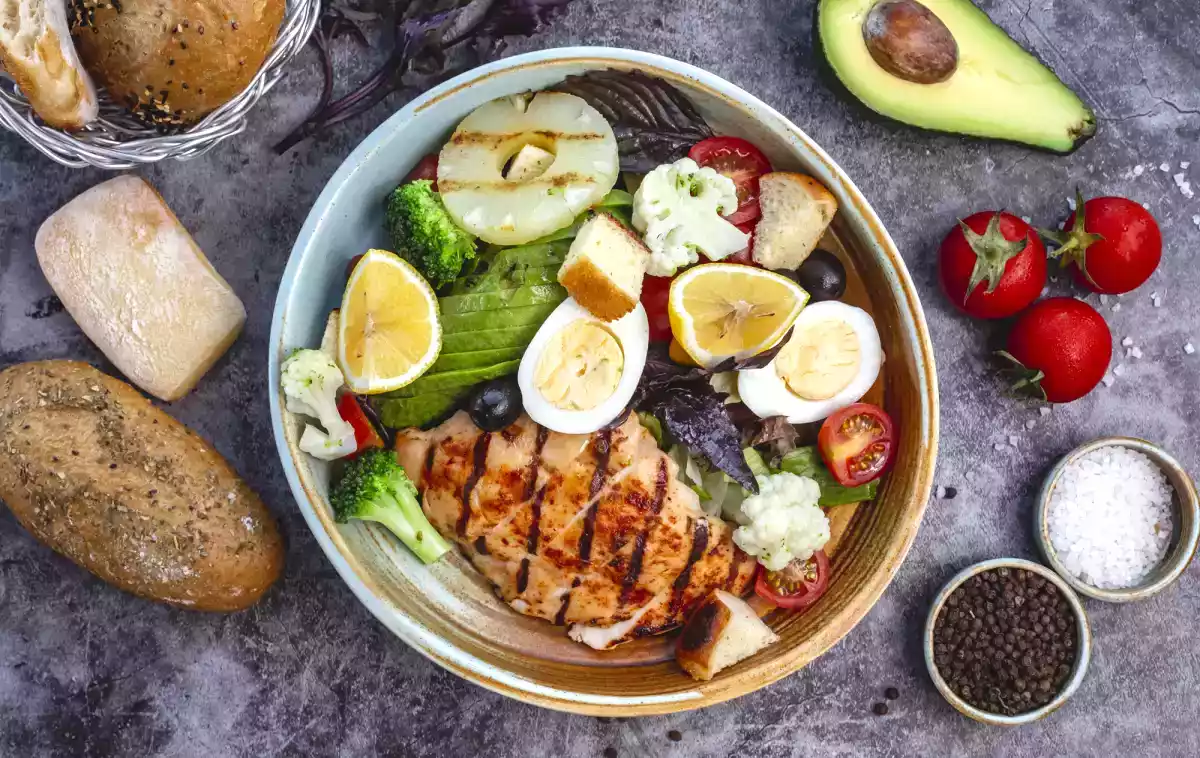It's possible to stop gaining weight during the holiday season!

1. Beware of aperitifs!

A nibble here, a nibble there, and you're in caloric overdrive. To avoid putting on weight, it's important to opt for lighter options at the aperitif, such as raw vegetables, mini brochettes or seafood, while limiting high-fat and high-salt foods such as potato chips and cold meats. It's also advisable to choose low-calorie drinks, such as a glass of dry wine or flavored sparkling water, and to avoid sweet or alcoholic cocktails. To better manage quantities, serve yourself from a small plate and eat slowly, taking a break between each portion.
2. Try to balance your meals - that's the basis!

Easier said than done, but it's an essential effort. There's no secret to balancing your meals: you need to focus on healthy, nutritious foods, while limiting excess. Combine vegetables and lean proteins, such as fish or poultry, and opt for wholemeal starches in small quantities. Swap creamy sauces for light alternatives, and reduce sugar consumption in desserts by favoring fresh fruit. Eat slowly to help you feel full, so your food doesn't fly away.
3. Drink water!

Drinking water before and during meals helps to control appetite, aid digestion and prevent overeating. By drinking a glass of water before eating, you send your brain a message of satiety. Water also helps limit consumption of alcoholic beverages, which are often high in calories, and can prevent bloating by eliminating excess sodium.
4. Don't give up sport!

As you know, it's not during the winter season that motivation is at its peak. Even if meals are heavier, physical activity helps burn calories, boost metabolism and promote better digestion. You don't have to work out 7 days a week, but simple activities like walking after a meal, dancing at gatherings or stretching can be enough to keep you active. Exercise also helps reduce stress. Holidays are anxiety-provoking, so it's important to keep a good mood, to make it easier to make sensible food choices.
5. Resume a healthy diet without feeling guilty

Now that all the festivities are over, it's important to gradually return to a balanced diet, focusing on simple meals, while gradually reducing sugars and fats. It's essential not to feel guilty about it: eating is part of the festivities, that's just the way it is. Accept the occasional lapse- it's okay as long as you're aware of it. Avoid drastic diets, which can be counterproductive. The idea is to restore your general well-being gently and patiently, with the emphasis on long-term consistency.
Healthy recipe ideas :
 Mathieu Maggiore
Mathieu Maggiore

Comments